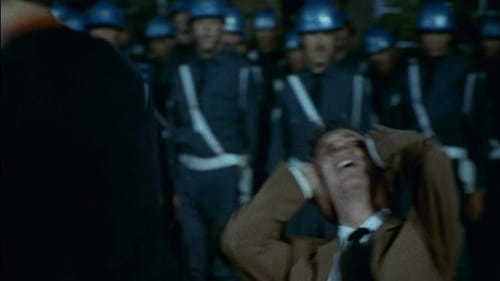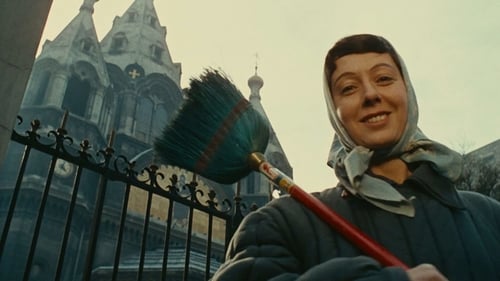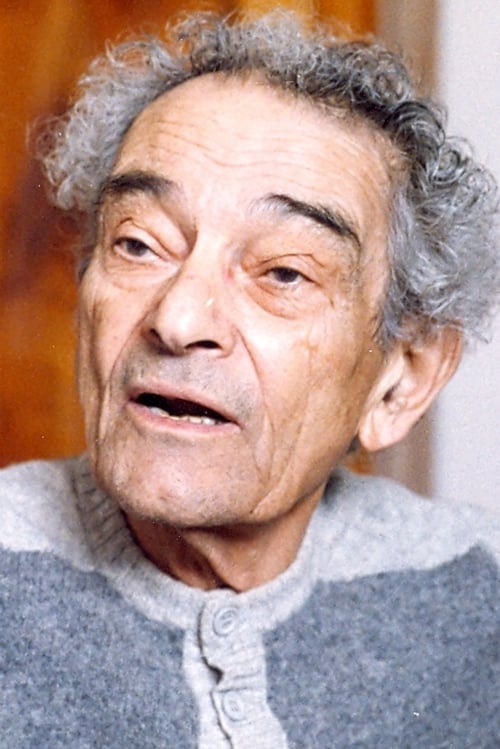Georges Rouquier
Birth : 1909-06-23, Lunel-Viel, Hérault, France
Death : 1989-12-19
History
Georges Rouquier (23 June 1909 – 19 December 1989) was a French film director, screenwriter and actor. He worked principally on documentary films, and his best-known work is Farrebique (1947) a lyrical evocation of farming life in Aveyron.

Scenario Writer
Biquefarre is a small farm in Aveyron. The changing economics of farming lead Raoul, in late middle age, to decide to sell and move to Toulouse. At least two neighboring farmers want to buy Biquefarre: Lucien and the young Marcel. Behind the scenes, Henri, whose brother is Marcel's father and who is also Lucien's brother-in-law, negotiates with Raoul so that Marcel's father can secretly sweeten Marcel's offer. Will dad and uncle succeed? In the background is the hard daily work of farming: milking cows, harvesting at night, and finding help when a farmer falls ill. Progress brings challenges: polluted water, factory farms, and skyrocketing land prices.

Director
Biquefarre is a small farm in Aveyron. The changing economics of farming lead Raoul, in late middle age, to decide to sell and move to Toulouse. At least two neighboring farmers want to buy Biquefarre: Lucien and the young Marcel. Behind the scenes, Henri, whose brother is Marcel's father and who is also Lucien's brother-in-law, negotiates with Raoul so that Marcel's father can secretly sweeten Marcel's offer. Will dad and uncle succeed? In the background is the hard daily work of farming: milking cows, harvesting at night, and finding help when a farmer falls ill. Progress brings challenges: polluted water, factory farms, and skyrocketing land prices.

Jean Lafaye
An educated woman ,with good prospects falls in love with an oceanographer .But breast cancer strikes : will she remain a true woman ,in spite of a mastectomy?

Director
In this film, Georges Rouquier describes the activity of the farrier in the multiplicity of its aspects. But the filmmaker does not limit his remarks to a pure technical description, he does not forget the man nor his family and village environment, nor the history where his life was written at a given moment. The director films Marcel Laforge, a blacksmith living in a small village in the Charentes, Garrat. Shot in one week, the film is a reconstruction; everything has been staged from fragments of multiple realities. This short film is articulated around three themes, sometimes confronted, but often confused: the man, the history and the trade.

Jeff
Jeff is a gangster who's disappeared with a million dollars, and Laurent is looking for him to catch him before the other members of the gang find him.

Attorney General (uncredited)
Amidst a heated political climate, the opposition leader is killed in what appears to be a traffic accident. When a magistrate finds evidence of a government cover-up, witnesses start to get targeted. A thinly-fictionalized account of the events surrounding the assassination of Greek politician Grigoris Lambrakis in 1963, Z captures the outrage about the military junta that ruled Greece at the time.

Mathieu
May 1944, in Provence, a young Jewish woman fleeing Nazi persecution, entrusts her three-month-old granddaughter to a stranger, Mathieu, a solitary shepherd who will raise her alone. Once the war is over, he will leave with her, in search of the mother. A research that will last more than twenty years and that will lead them to several European countries.

Director

Writer

Director

Narrator
One of Chris Marker's earliest documentaries (1957) and probably one of his best, the hour-long Letter From Siberia mixes new and found footage with inventive commentary, and is especially memorable for a passage in which footage is repeated while the offscreen commentary transforms its meaning with a different ideological interpretation. It is perhaps the earliest example we have of Marker's inimitable essayistic manner, hence an indispensable work.

Assistant Director
This is October 1955. The place is a village in Loire-Atlantique, La Chapelle-Basse-Mer, where an old clog-maker works and lives with his wife and their adopted son. The clog-maker's meticulous craft is described with love and close attention to detail. On the other hand, forthcoming death pervades the quiet everyday life of the elderly couple.

Producer
This is October 1955. The place is a village in Loire-Atlantique, La Chapelle-Basse-Mer, where an old clog-maker works and lives with his wife and their adopted son. The clog-maker's meticulous craft is described with love and close attention to detail. On the other hand, forthcoming death pervades the quiet everyday life of the elderly couple.

Narrator (voice)
This is October 1955. The place is a village in Loire-Atlantique, La Chapelle-Basse-Mer, where an old clog-maker works and lives with his wife and their adopted son. The clog-maker's meticulous craft is described with love and close attention to detail. On the other hand, forthcoming death pervades the quiet everyday life of the elderly couple.

Screenplay
Hunters track a wild boar in the Sologne forests

Adaptation
Hunters track a wild boar in the Sologne forests

Director
Hunters track a wild boar in the Sologne forests

Director
The life of the pilgrims in Lourdes and the cases of healing recorded by the Bureau of Medical Findings.

Director
Love in a Hot Climate (Spanish: Sangre y luces, French: Sang et lumières) is a 1954 Spanish-French drama film directed by Georges Rouquier and Ricardo Muñoz Suay. It was entered into the 1954 Cannes Film Festival.

Writer
A romantic German girl is brought to France. After an interlude with an old roue, she falls in love with a simple, but married, man. She goes to work for him as a servant, but after a night of love with him, she commits suicide.

Scenario Writer
Farrebique, the first feature-length effort of French documentary filmmaker Georges Rouqier, is widely regarded as his finest film. Rouqier concentrates on a single French farm family, following them through the four seasons. As in the works of Robert Flaherty, the human characters and the land surrounding them are "one", and Rouqier never misses an opportunity to parallel their lives with the eons-old phases of nature. The final symbolic images of Spring, achieved through time-lapse photography, are almost unbearably beautiful. The winner of several festival awards, Farrebique nonetheless did not immediately result in an outpouring of financing for Rouqier's follow-up films (this was a common problem in the financially strapped French film industry of the 1940s). Perhaps as a result, Rouqier did not make his sequel, Biquefarre (filmed in the same region, with some of the same "actors"), until 1983.

Director
Farrebique, the first feature-length effort of French documentary filmmaker Georges Rouqier, is widely regarded as his finest film. Rouqier concentrates on a single French farm family, following them through the four seasons. As in the works of Robert Flaherty, the human characters and the land surrounding them are "one", and Rouqier never misses an opportunity to parallel their lives with the eons-old phases of nature. The final symbolic images of Spring, achieved through time-lapse photography, are almost unbearably beautiful. The winner of several festival awards, Farrebique nonetheless did not immediately result in an outpouring of financing for Rouqier's follow-up films (this was a common problem in the financially strapped French film industry of the 1940s). Perhaps as a result, Rouqier did not make his sequel, Biquefarre (filmed in the same region, with some of the same "actors"), until 1983.

Director
A short documentary about the barrel making process.




